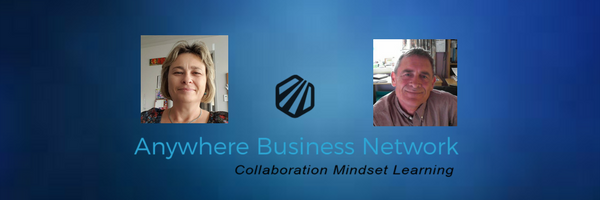The future of work
If you are struggling to find your place in the world of work that currently binds you to the 9 to 5 workday that includes a commute to work then perhaps you would be interested in working differently in our changing world of work. If you haven’t already noticed it, how we work and where we work have changed significantly in the last decade. Maybe you need to consider how you can use your skills and experience to work differently so you get more of what you want. For me it’s flexibility, over the last 12 years I have needed to work around my family commitments. What are you looking for? Whatever it is it can be achieved if you start by looking at the current digital landscape as an opportunity.
We are working differently
Consider the already changing way in which work is being done from when you first started work. Technology has changed the work landscape significantly. I no longer need to travel to my clients for all the interactions I have with them. For example, I can have a virtual online meeting with a new staff member to train them on the use of my system. I can see them, they can see me, we can record our meeting and review what was said, we can share information on the screen in real time and if we need to bring in anyone else we can invite them in too – no matter where they are.
HR professionals and managers too have used Skype to interview talent for more than 10 years now, making it possible to employ the right person for the job no matter where they live. Working remotely has also never been easier and is becoming more and more accepted. How many of you know at least one person who works remotely? I know at least 4.
We want different things
So we know technology is enabling change but, what is driving this change in work? Technology is replacing functions that are time-consuming and in our current digital environment, we expect the thing to available quickly. We don’t like wasting time. This will be even more relevant to the Millennials who have grown up in this instant world and they are changing our world of work already. Staying in one job, doing the same thing day in and day out will not be tolerated by millennials who expect to be entertained whenever they want. They have ideals, causes and are motivated by these and not by money. Money is important, yes but freedom and variety are more important.
What can you do?
First, ask yourself if it is possible to do your work, or the majority of it from anywhere? If some tasks need face to face interaction can this be done by an online meeting?
Secondly, could what you be done on line or out sourced? Would you consider contracting on a short or long term basis?
Thirdly, could you or you and a business partner set up a business contracting to businesses anywhere doing all or part of what you do?
Fourth, do you need help understanding the digital landscape so you know what is possible?
We have lots of free information on the Anywhere Business Network website so feel free to look through this. We highly recommend you check out our video series if you are thinking of a change so you have all the support you need on this journey. We even have a 30 day free trial to our online learning platform where you will collaborate with others just like you who are in various stages of development of their work life. They are all learning about having a mindset that will take them where they want to go. They are all setting aside any spare time they have to learn from those who are sharing their experiences, mentoring, encouraging and challenging those who are telling them “yes, I need to think differently, I need a change, I am ready to learn, work with me”
We are AWB are here to help you. Check us out. Here our stories. Subscribe to our newsletter or our social media platforms and kick start you new career or business into life.
Kerri Bainbridge
Half of Anywhere Business Network







